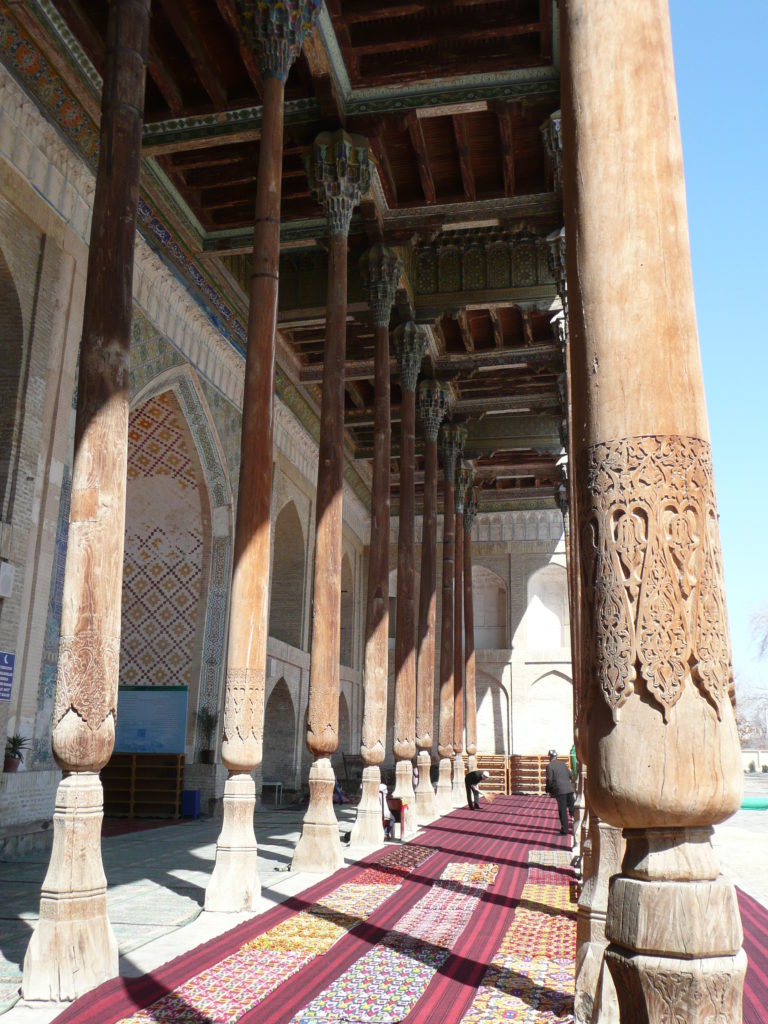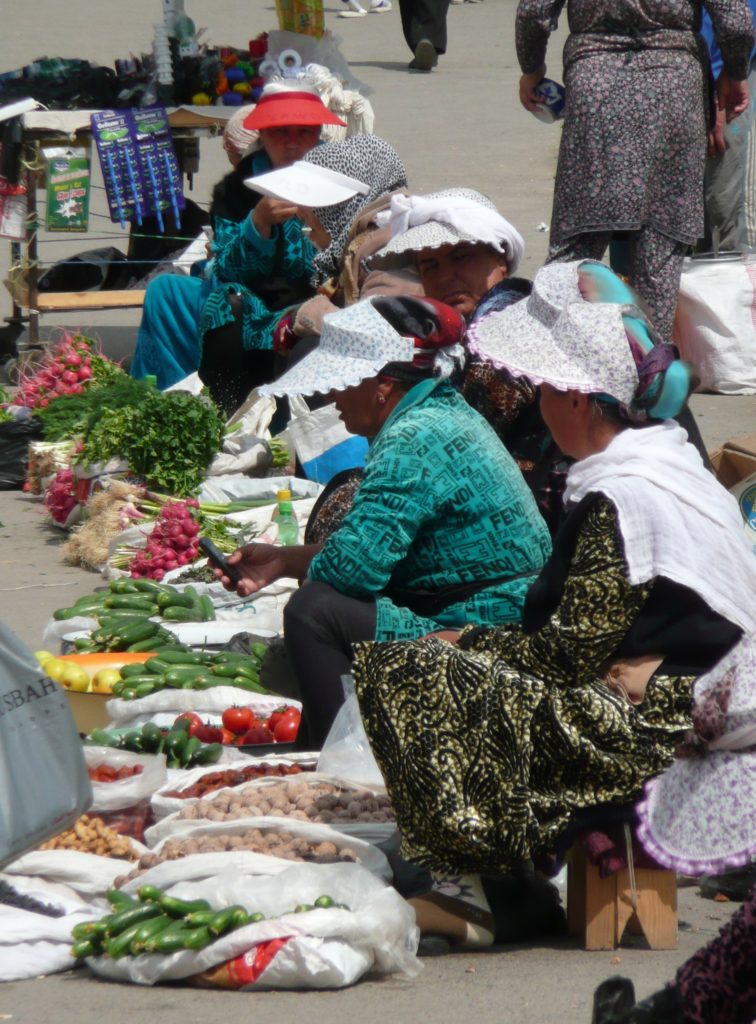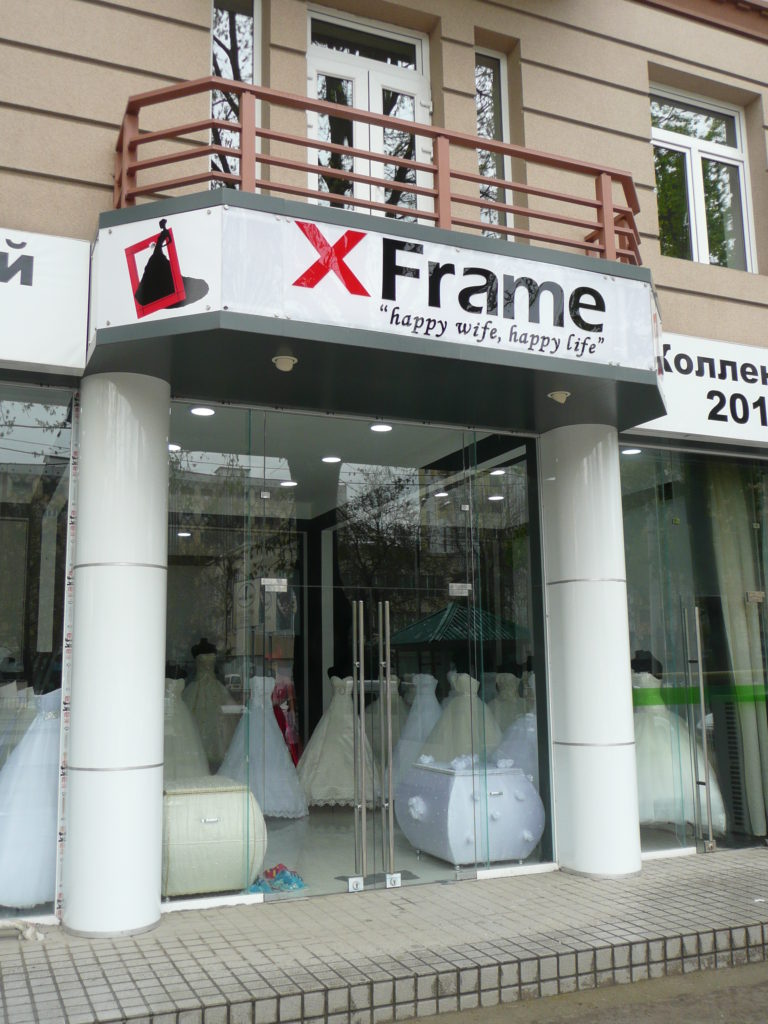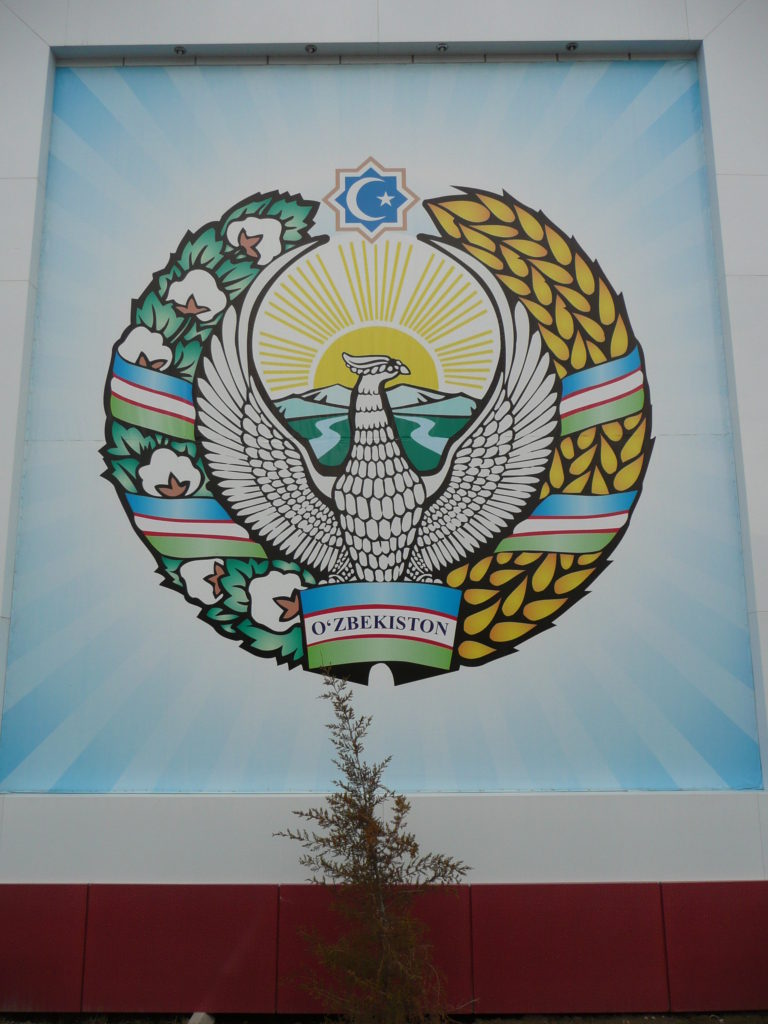A typical lunchtime scene in Uzbekistan: a humble cafe, four men sit round a cheaply laminated table, in front of them a full bottle of vodka and some small, dainty, chipped bowls, commonly used for drinking tea. The first round is poured out and the earnest work of drinking begins. By the hour mark things descend into slumps, slurs, blurs and increasingly vague gesturing, the jolly affirmation of male bonding familiar to many of us from other cultures. But, this is meant to be a Muslim country and the Quran, although not forbidding booze outright is explicit on the sin of intoxication and hadiths (collections of traditions of the Prophet Mohammed) have plenty of statements saying any alcohol is a big no -no. Such are the failings of man and the influence of decades of Russian imperialism: the fall of the Soviet Union has given Uzbeks the chance to reclaim their history, culture and religion but the lure of a good piss up on vodka left too much of a good hangover from the days before 1991.
The history museum of the people of Uzbekistan in Tashkent celebrates the new era ushered in by the end of the Soviet regime with a declaration on founding a nation on values of human rights, with freedom of religion and political persuasion. This is known to political scientists as total arsewipe, as nothing of the sort occurred. With a president whose first name is Islam you might have thought that the religion would have had more official support, but President Karimov is more widely known for having political opponents boiled alive, because they don’t conform to the nice, compliant form of Islam that he would prefer. Karimov, like so many other dictators around the world said a big thank you to George Bush’s war on terror as it allowed him to brand any opponent in the country as a terrorist, as well as earning U.S. credit by outsourcing his secret service’s not inconsiderable torture skills to be used on anyone unfortunate enough to be labelled in the extremely broad category of enemy combattant. With the U.S. wanting supply routes to Afghanistan through the country there was no chance that the West was going to do anything inconvenient like mention the subject of human rights or democracy. His position has also allowed him, his family and his mates to cream off millions from the state’s financial dealings without reflecting on Mohammed’s words, “the plentiful (i.e., the rich) will be the lowest on the Day of Judgement, except he who distributed his money left and right (i.e., at all times), while he earned from pure (means).”
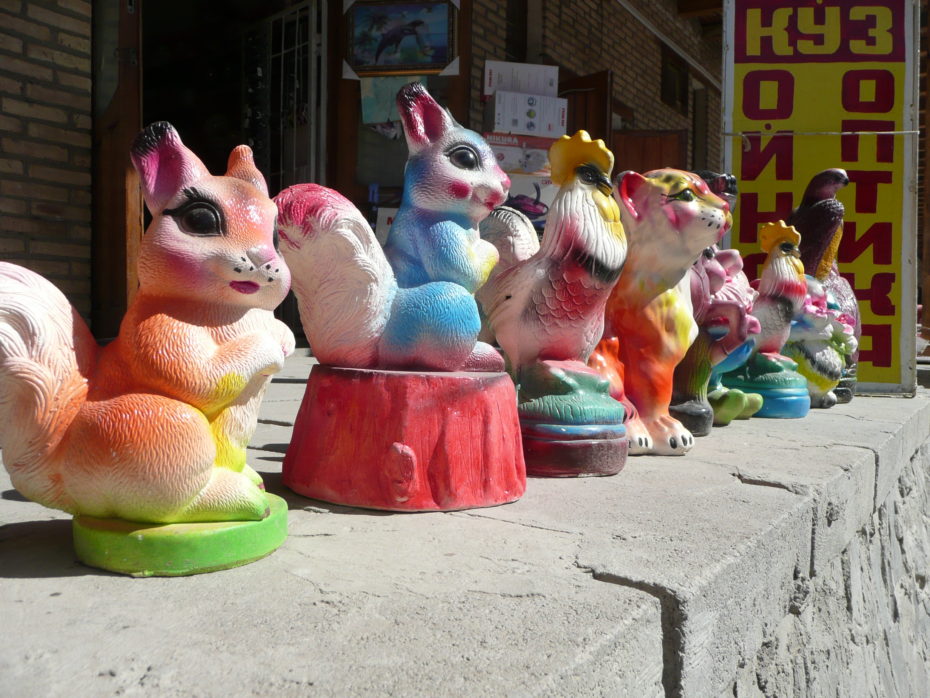
Obviously many Uzbeks are far too busy enjoying such charming displays as this to bother going to the mosque
Although you will see plenty of women following conservative Islamic dress codes there is no shortage of leg showing on the streets of Tashkent, albeit with nothing up to, or should that be down to, mini skirt length. The local men have to endure the distressing sight of teenage schoolgirls in short skirts, one can but sympathise with such arduous demands on the eyeballs.
Quite how much Islam is even left in wedding ceremonies is difficult to say but the surely economically unviable number of shops providing Western style, virginal white wedding dresses has demoted the fabulous traditional dresses of less than a century ago to museums. The huge, baubled nose rings of yesteryear, which must have prevented any chance of the grooms lips getting anywhere near his beloved’s have also gone. Weddings seem to occur at all times of the week in such a prodigious number that I can only assume that absolutely everybody gets married at the first possible opportunity and the special day obviously has much in common with what we would recognise with the event.
When God’s will has already determined one’s fate it can lead to a laissez-faire attitude to road use by drivers and the standards are certainly less distressing than those in Georgia (See http://insideotherplaces.com/2013/09/27/georgia-god-and-the-ford-transit/) which can only indicate a lower level of belief, even though seat belts are strictly only worn when approaching police check points and immediately removed once passed. However the biggest industry in the country is without doubt the production of concrete road barriers which grace the centre of many of the country’s roads, as Uzbek drivers have developed a liberal interpretation of things so ephemeral as painted road markings.
After a few weeks of wandering around I eventually discovered where most of the Islam had gone – to the Ferghana valley in the fertile NE of the country, where the copious smiles and greetings were all I needed to know I was back in the kind of land of Islam I have become used to. The typical urge to assist any stranger to their land soon manifested itself. Having arrived late on saturday afternoon, confronted by a lack of cheap accommodation I was virtually out of Som, the Uzbek currency. With little chance of searching out money changers, I managed to get to a bank on the verge of shutting up shop for the weekend, I was ushered in by a trio of excessively jolly policemen only to discover that it was too late to withdraw cash with a card and they didn’t do foreign exchange. Looking somewhat perturbed I groaned, “no Som”, or rather, “Som niet” in my next to non existent Russian. Responding with words I can only assume meant something like, “I’ll see what we can do “, he led me to another room where the tellers were in the process of packing up. After a few words with one of the ladies he said they would change some dollars for me. The official bank rate is about 30% less than the black market rate I had been getting on the streets but I was relieved just to have some cash for the weekend. Hence it was with some surprise that I was soon holding a wad of notes at the black market value with no paperwork to fill in. By the time I had left I was on first name terms with the three policemen despite my inability to understand most of what they said.
It’s also in this part of the country that you come to realise the extent of state control over Islam. Despite being predominantly Muslim you will never hear the call to prayer resounding from the minarets and if your facial hair is any more significant than a goatee beard you will be generously provided with long-term accommodation at the government’s expense, in a small dark room, your freedom limited only by the absence of functioning kneecaps. In Namangan, where you have to be extremely lucky to glimpse a lady’s knee, a clear sign of piety, the holy day of friday started off as busy as any other day of business, rather than religious observence, the incessant honking of impatient driver’s horns being a poor replacement for the wail of the muezzin.
When people had the temerity to protest peacefully in the town of Andijan in 2005, hundreds were gunned down, which in political language is known as sending out a strong message. The issue is still so sensitive that if you try to find a map of the town on the internet you will find only a street plan with no road names or landmarks. Consequently I never found the square where the atrocity happened and thought it was probably best not to go around asking, “where’s the place were all the people were machine-gunned to death a few years ago”? The name of the square has since been changed, so that makes everything alright then. However I still met people who in the town who adored their great president, I suspect that this is as much a product of the state’s control of the media who blamed everything on Islamic extremists. Although extremists undoubtedly exist their presence is muted and would have little reason to exist if it were not for the government’s brutal repression of all opposition and particularly of the Islamic variety.
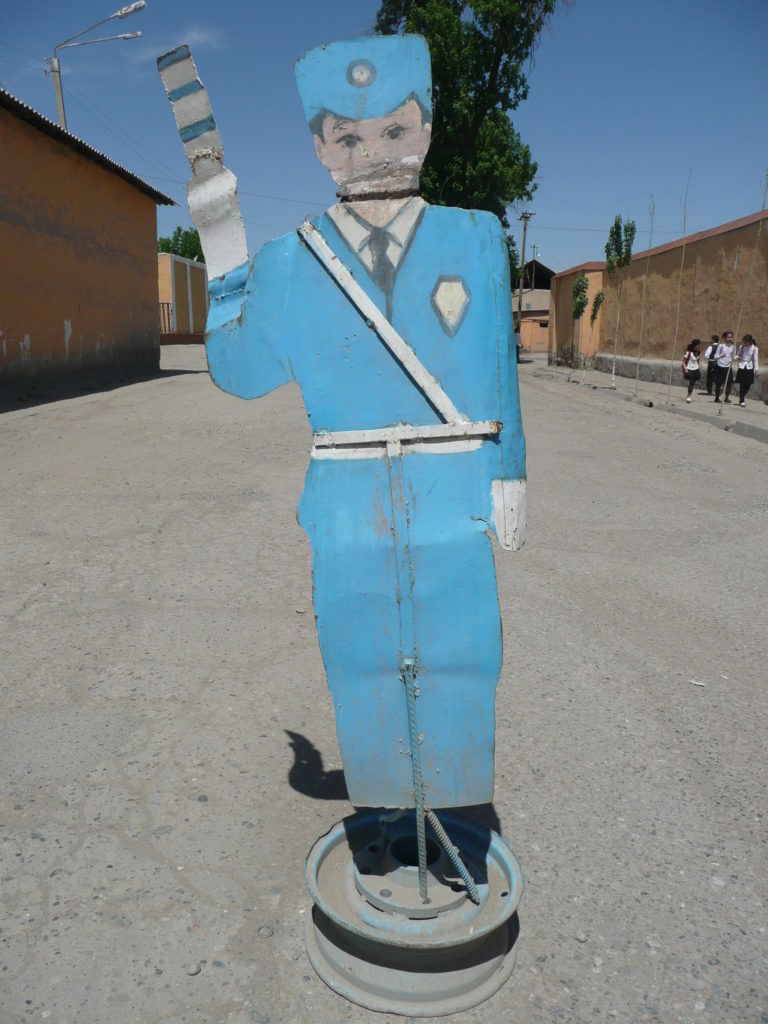
A simple way of saving on expensive traffic police, saving valuable manpower for more important jobs, like shooting people
The fact that decades of Soviet, state endorsed athiesm did so little to dissuade believers in the Ferghana valley, it’s safe to say that the current regime will have little effect in the long-term, the religion undoubtedly being practiced quietly at home and I look forward to the day I can return when people are able to express themselves freely but still get a beer when I want one, naturally.




